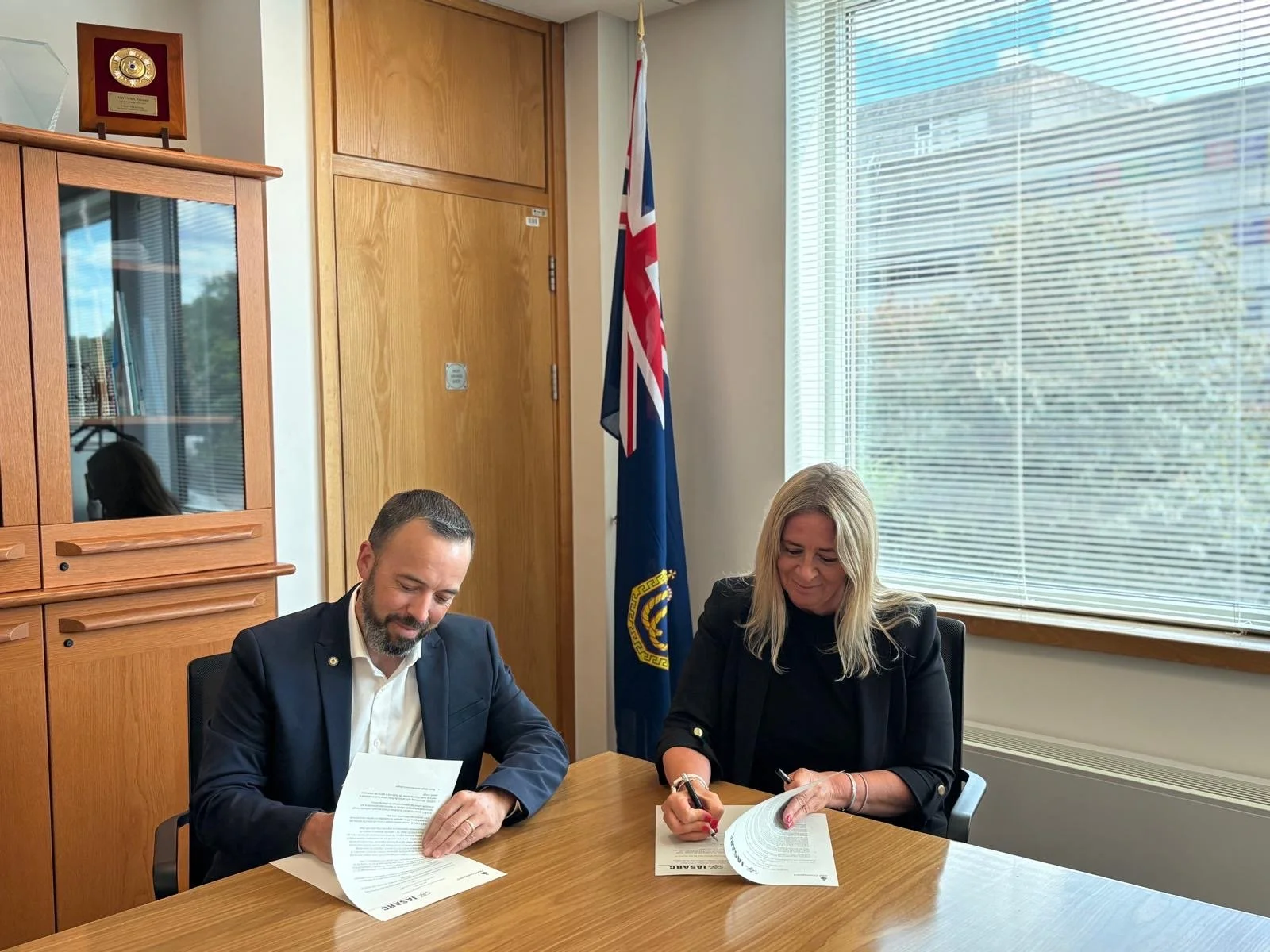HMCG and IASARC Start A New Chapter in Global Search and Rescue
Strengthening Global Search and Rescue Through Partnerships
The International Association of Search and Rescue Coordinators (IASARC) is honored to collaborate with the HMCG in a shared effort to enhance the Global SAR System.
Together, we’re advancing a common goal: improving lifesaving coordination, promoting interoperability, and supporting the science and innovation behind modern SAR.
This partnership reflects a growing international consensus that saving lives requires collective insight, shared resources, and trusted cooperation across borders.
Through joint initiatives, professional exchanges, and shared participation in SAR forums and training, we are committed to elevating global standards and outcomes in emergency response. Follow along as we turn shared purpose into action.
Why Partnerships?
Those in distress are rarely saved by an individual acting alone. Rather, behind every life saved is a team of talented professionals whose skills, knowledge, and capabilities are the result of generations of lessons learned and adaptation to technological innovation.
To the extent that the world’s lifesaving mission is effective today, it is only through the determined efforts of all those who came before us, and the effectiveness of tomorrow’s lifesaving mission will be determined by our efforts in our time to build and grow the profession.
As the U.S. SAR Supplement states, “Partnerships + Planning + Practice = Preparedness.” If we are to be prepared for the lifesaving challenges of the next era. In that case, we need to start now with partnerships, and those partnerships should involve every component of the world’s lifesaving enterprise.
Those who dedicate themselves to the lifesaving mission hail from a myriad of enterprises, disciplines, and callings. In the U.S., most maritime search and rescue (SAR) is conducted by paid professionals from various state and federal agencies. At the same time, civilian volunteers lead the majority of land-based SAR missions. In Europe, most maritime SAR responsibilities are handled by large charitable organizations, such as the Royal National Lifeboat Institution (RNLI). Land-based missions, on the other hand, are the domain of volunteer Rescue Teams overseen by His Majesty’s Coastguard (HMCG) or the National Police.
But whether volunteer or paid, civilian or military, full-time or part-time, they are all integral components of the Global SAR System.
Engrained in the ethos of the Global SAR System is the ideal that saving lives must take advantage of All Available Resources. The International Aeronautical and Maritime Search and Rescue (IAMSAR) Manual implores nations to “effectively use all available resources for SAR, including global, regional, national, private, commercial, and volunteer resources.” Additionally, the U.S. National SAR Plan further advocates that, “Consistency and harmonization should be fostered wherever practicable through plans, procedures, equipment, and agreements…”
Global partnerships are vital in SAR because they enable rapid, coordinated responses to emergencies that often transcend national borders, such as natural disasters, large-scale accidents, or humanitarian crises. Additionally, by sharing expertise, lessons learned, and technology, countries and organizations can significantly enhance their capabilities, reduce response times, and improve survival outcomes.
These partnerships also foster standardized protocols, joint training, and interoperability, ensuring that teams from different regions can work seamlessly together. In a world where disasters are becoming increasingly complex and interconnected, global collaboration is crucial for saving lives and delivering timely, effective aid.
Notable Links
Support the world’s lifesaving mission | Donate
Visit His Majesty’s Coastguard | HMCG
View on LinkedIn | HMCG & IASARC
Follow IASARC | LinkedIn


